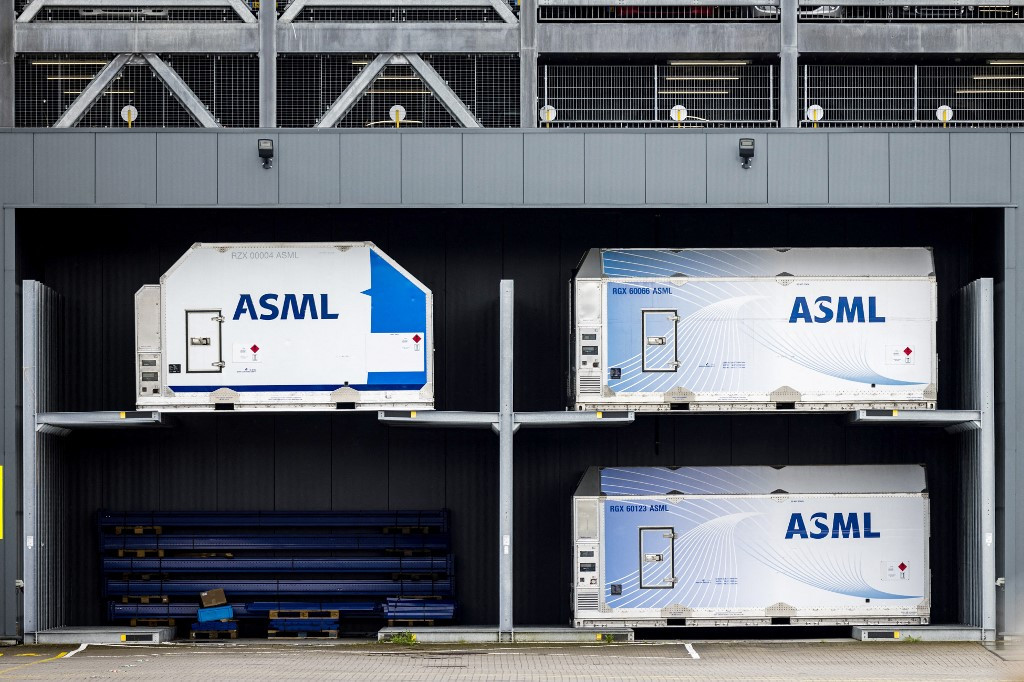Popular Reads
Top Results
Can't find what you're looking for?
View all search resultsPopular Reads
Top Results
Can't find what you're looking for?
View all search resultsASML warns it may not achieve growth in 2026, shares drop
The direct and indirect impact of tariffs are still very uncertain, CFO Roger Dassen said in the interview, ASML was working with its supply chain to mitigate any impact.
Change text size
Gift Premium Articles
to Anyone
A
SML, the world's biggest supplier of computer chip-making equipment, warned on Wednesday that it may not achieve growth in 2026, even after its second-quarter bookings beat market expectations.
Analysts had hoped that the quarter would provide some reassurance over its outlook for 2026. However, the company warned that geopolitical uncertainty continued to cloud its prospects. Shares sank as much as 7.3 percent in early trading.
"The level of uncertainty is increasing, mostly due to macroeconomic and geopolitical consideration. And that includes, of course, tariffs," ASML's Chief Executive Christophe Fouquet said in an internal interview on the company's website.
The direct and indirect impact of tariffs are still very uncertain, CFO Roger Dassen said in the interview, ASML was working with its supply chain to mitigate any impact.
"While we still prepare for growth in 2026, we cannot confirm it at this stage," Fouquet said in a statement.
If it materialized, 2026 would be the first flat year in over a decade of uninterrupted revenue growth since 2012.
ASML investor Han Dieperink, chief investment officer at investment firm Aureus, said he was not worried about the upcoming year, noting that the quarter pointed to solid demand.
The Dutch group's net bookings, the most closely watched figure in the industry, were 5.54 billion euros ($6.4 billion). That was ahead of analysts' consensus estimate of 4.44 billion euros, according to researcher Visible Alpha.
"The second quarter beats from top to bottom," analyst Michael Roeg of Degroof Petercam said. Roeg cited strong demand from artificial intelligence related chipmakers.
ASML's EUV lithography machines, the world's most advanced chip circuit printing system, is the key enabling technology behind leading-edge chips like those used in Nvidia's GPUs, or Apple's Macs and iPhones.
Chinese demand also remained elevated, representing 27 percent of all machine sales in the last three quarters, and confirming the country's chipmakers have continued to buy less advanced machines in anticipation for more US-led export restrictions.










